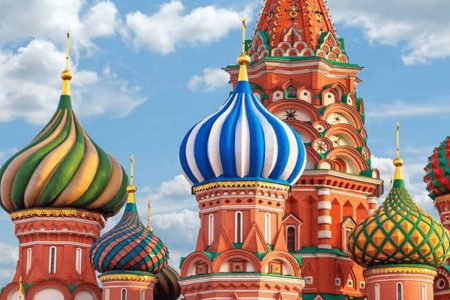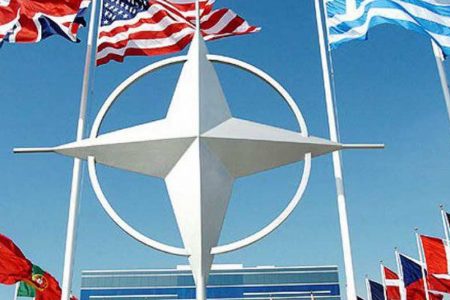As the Arab Spring has slowly failed, Western investors in democracy focused their attention to the only democracy, however weak and menaced. Tunisia’s current challenges include terrorism, corruption, religious and economic cleavages, as well as lack of trust in its leaders. All of these influence the security environment and are crucial both for Tunisia as well as for Europe. I will try to make a short portrait of the security and political dynamics in order to see what the prospects are for Tunisia’s future.
General characteristics
Country-wide protests against poor levels of employment, measures against smuggling activity, terrorist attacks against security and military agencies and several confrontations between State forces and terrorist groups, general social discontent against government’s approaches, as well as political and religious polarization have been hot topics over the past few months.
These political discrepancies can still be seen, especially in the South, where the protesting atmosphere has not yet been totally eradicated. Such evolution could be a factor in the politico-economic establishment’s evolution. The anti-corruption campaign launched by the Prime Minister Youssef Chahed, the systematic security counter-terrorist campaign and the increasing international openness of the Tunisian authorities suggest an improved societal environment compared to 2015. The results of the G7+6 mechanism’s working groups have been saluted by several international actors and platforms.
In the context of a prolonged state of emergency (until October 17th) and a developed counter-terrorism programme, and given the common knowledge that terrorist groups are structurally related to smuggling groups, the anti-corruption campaign is yet another layer of a comprehensive security approach. Yet, the civil society environment has been affected by the Libyan anti-smuggling measures managed by the Committee for the oil and gas crisis (FGCC). Massive protests in the South-Eastern region followed, later to be expanded to the West and throughout Tunisia.
Political dynamics
The post-2011 political environment has never been easy. The 2015 terrorist attacks and the terrorist attempt of conquering Ben Guerdane, as well as the continuous evolution of terrorist groups activating in Tunisia have significantly influenced both the local and national politics. Islamic groups, such as Hizb Uttahrir party, propagating non-democratic ideas haven’t made them easier.
On May 10th, the International Crisis Group (ICG) released a report on the political transition in Tunisia, providing a plan for dealing with the biggest challenges facing Tunisia at the moment: corruption and regionalization. Given the deep economic cleavages in the country, the ICG suggests an economic platform involving all types of economic actors, while creating a public-private investment fund to help each of them get involved.
In this context, however, the debate on Ennahdha’s responsibility in propelling the terrorist phenomenon is quite positive. Ennahdha has represented the core of the fight of Islam’s followers under Ben Ali’s dictatorship, when it wasn’t yet a democratic party; when it became one under a democratic regime, their disappointment was direct proportional with Ennahdha becoming a competing democratic group. Yet, for some, it has also represented the beginning of an underground system, based on oligarchic links and smuggling businesses.
Due to different factors – such as the disproportionate socio-economic – the two main parties, Ennahdha and Nidaa Tounes, have normally tried to capitalize on different sectors of the population. But they are both seen as part of the corrupt and non-transparent system. Lack of trust is thus an urgent matter that might improve through the current anti-corruption campaign.
This popular distrust has produced two major phenomena, depending on the region. Inside the country, people are politically alienated, orientating their attention to political movements that seem to better understand their situation, sometimes promoted by terrorist groups, such as AQMI and the Islamic State (IS) or local groups pledging allegiance to them. In the big coast cities, this determines a complete lack of interest in politics and the hot issues debated in la Kasbah. Both phenomena encourage the religious cleavage which is illustrated by the political game between the two main parties.
Recently, as major social movements and the security programme have stuck to unilateral approaches, the societal atmosphere is tense. The “civil disobedience campaign” in the South makes many analysts fear for the aggravation of the national social and political situation, which would constitute only the peak of a long period of civil opposition to central policies.
Recent regional evolution
The Maghrebin and more largely, the North African evolution is progressing if we talked about cooperation in the matters of counter-terrorism and the Libyan conflict. Despite several setbacks caused by some countries more than others, the dialogue platform for a peaceful solution to the Libyan crisis shows reasons for optimism. Tunisian politicians are in contact with different Libyan leaders and had the initiative of a regional platform aiming at finding a solution to the Libyan conflict.
On the other hand, illegal migration remains a challenge. Waves of refugees or economic migrants mainly coming from fragile African zones menace notably the Eastern border with Libya, Ben Guerdane being a hot transit point. Moreover, terrorist flows between Algeria, Tunisia and Libya are preoccupying the three governments. This is made easier by the Libyan conflict and the Dessert in the southern parts of all three.
The Eastern area is also a hot zone due Libya’s recent measures to fight oil traffic. In this perspective, transport of oil to neighboring countries constitutes a major problem for the internationally-recognized government in Tripoli. Thus, the FGCC started a massive offensive against smugglers in March 2017.
Conversely, the feedback from Tunisians in the South-East has been significant. Started with Ras Jedir at the beginning of April, it spread to Jamila, Ben Guerdane, El Kamour, Tataouine, as well as at the border with Algeria and further to the center. Among these, the ones in Kebili, El Kamour and Sidi Bouzid posed significant problems to the authorities. It is notable that these governorates are very poor whereas terrorist activity is especially high. Finally, a great movement against poor policies in the socio-economic field was created in order to put pressure on the government. The Tunisian government decided to act in synergy with the Libyan one and start a country-wide anti-corruption campaign (May 23rd).
Security issues
Given the major terrorist threat, including foreign terrorist fighters (FTF) and local sections of ISIS and Al Qaeda, as well as the recent protest phenomenon and the increased public society response to political issues, the security environment has become more dynamic in the last few months. In this context, the level of preparedness of the security and military authorities has greatly improved since 2015, when the terrorist events found these agencies completely unprepared for high-scale crises. That cannot happen now.
The military strength is well illustrated by investment in counter-terrorism and borders (10% of the state budget). The main institution in charge of security is currently the Ministry of Defense, although the Interior Ministry is still an important player due to its influence. Also, the National Guard is the main power facilitated to answer to a major national security threat. It is worth noting that the Tunisian Army is seen by a recent Transparency International report as the least corrupted in the MENA region and the 76th military power by Global Firepower 2017 (less than its neighbors).
The main event unleashing the events in the last three months was the President’s declaration to protect the (oil) production sites in the South, following a manifestation against the anti-smuggling measures in Libya. Thus, on May 23rd a whole anti-corruption campaign was declared by the Prime-Minister Yussef Chahed. The publication of the Decree no. 90/2017 on the protection of production sites (July 3rd) won’t calm down the civil society although an accord was signed with the ones in the Tataouine governorate.
On June 23rd, Defense Minister Farhat Horchani asserted that the counter-terrorism fight is on its final stages, providing assurances on the Army’s capabilities. Furthermore, during a celebration at the Aouina military base (June 30th), Beji Caid Essebsi (BCE) reinterred the State’s commitment to fight terrorism and destroy it from the roots.
Occasional clashes between the armed smuggling groups and the military have not ended in the South-Eastern buffer zone of Ben Guerdane. Moreover, clashes with the terrorists in Sidi Bouzid and the Western mountains represent a real threat for the authorities, with regular incidents, including deaths. At the same time, civilians have generally not been a target in the post-Bardo period. Civilians remain though a target for recruiting terrorist cells. Manifestations as the ones in Sidi Bouzid, Kebili and El Kamour (Tataouine governorate) contribute to the tensioned Tunisian environment. Moreover, the month of Ramadan presented a significant level of security threats. Thus, 20 504 people were arrested.
Fluid issues
It is not clear whether things will remain calm in the medium and long term. The wave of protests is not over yet. Although the majority of protests have cooled down, recently the Bou Lahbal (Douz) pipeline was closed by protesters. It wasn’t the first such incident. Meanwhile, in Tataouine governorate, where the Ghehiba-Wazen border with Libya had been blocked for 20 days (end of April – beginning of May) by Ras Jedir protesters, El Kamour protesters – in spite of several government cooperation initiatives – remained on the ground for more than three months. On July 5th, the routes to Tataouine town were blocked by them.
Furthermore, clashes between state forces and terrorists also represent a threat, not ready be absolved by the Tunisian society, notably because the level of popular dissatisfaction causes significant alignment with terrorist groups’ claims and stakes. Although their morale cannot be very good due to the level of preparedness proved by the Tunisian State since the battle of Ben Guerdane, the defeat of ISIS on most of its main core areas is making FTF return to their countries. FTF’s specialization and their morale can worsen the level of security in Tunisia in the medium term.
Chahed’s government faces higher demands from civil society than a few years ago, as it continues to adapt to the rules of a democratic system. Even though Chahed has proven to be a leader capable of implementing the very popular anticorruption campaign, he still has to prove that the government is well intentioned and there is no hidden agenda. On the other hand, people see unemployment, economic crisis and corruption as the most urgent matters. 68% of Tunisians (April 2017) think that the government isn’t performing well, compared to 43% in June 2015, according to a recent survey.
International assistance, although increasingly determinate and abundant, needs to find ways to adapt to the local environment. Both the Tunisian government and civil society are skeptical when it comes to international intervention, so that the works of the G7+6 mechanism as well as those of the EU for example are usually delayed by the Tunisian government functioning and openness. However, the G7+6 mechanism is succeeding in creating a dialogue platform with the Tunisian State. This is a vital step in the West’s aim at observing the pulse of the only Islamic democracy, which will have to be followed up by few but strategic partners for Tunisia, who will be able to respect Tunisia’s leading role in its own progress and to act in the right sensitive areas with tact, unity and excellence.




